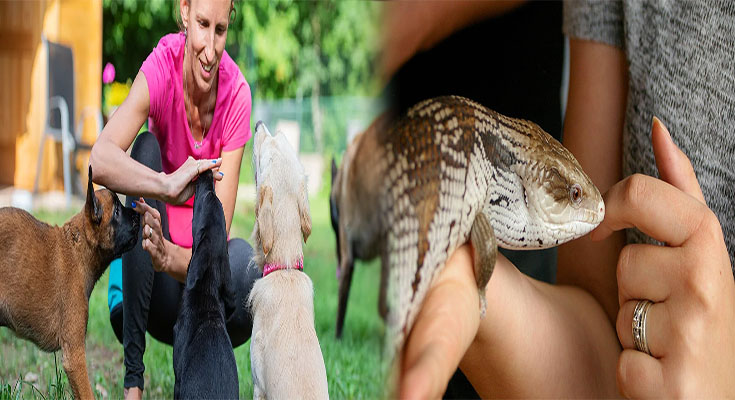Taking on the responsibility of caring for an exotic pet comes with unique challenges, especially in terms of socialization and training. Here are some essential tips to help you effectively socialize and train your exotic pet for a fulfilling and enriching relationship:
1. Research Your Pet’s Species:
Before bringing an exotic pet into your home, make sure to thoroughly research their species-specific behaviors, social needs, and training requirements. Understanding their natural instincts and preferences will help you create a suitable environment for them to thrive.
2. Start Early and Be Patient:
Socialization and training should begin as early as possible to help your exotic pet adjust to their new surroundings and build positive associations. Patience is key, as every pet learns at their own pace and may require varying levels of time and effort.
3. Provide a Safe and Stimulating Environment:
Create a safe and enriching environment for your exotic pet to explore and interact with. Offer plenty of mentally stimulating toys, hiding spots, and opportunities for exercise to keep them physically and mentally engaged.
4. Use Positive Reinforcement:
Positive reinforcement, such as treats, praise, and rewards, is a highly effective technique for training exotic pets. Rewarding desired behaviors encourages them to repeat those actions and reinforces a strong bond between you and your pet.
5. Consistency is Key:
Establish consistent routines and rules to help your exotic pet feel secure and understand what is expected of them. Reinforce training regularly and maintain a predictable schedule to foster a sense of stability and trust.
6. Seek Professional Guidance:
If you are unsure about how to socialize or train your exotic pet, consider seeking guidance from a veterinarian specializing in exotic animals or an experienced animal behaviorist. They can offer expert advice tailored to your pet’s specific needs.
7. Gradual Exposure to New Environments:
Introduce your exotic pet to new environments, sounds, and experiences gradually to prevent overwhelming them. Expose them to different stimuli in a controlled manner, while monitoring their reactions and providing reassurance as needed.
8. Monitor Body Language and Behavior:
Pay close attention to your exotic pet’s body language and behavior cues to gauge their comfort level and adjust your training approach accordingly. Understanding their signals will help you build trust and address any issues that may arise.
9. Practice Regular Handling and Interaction:
Regular handling and interaction with your exotic pet are essential for building trust and strengthening your bond. Be gentle, patient, and respectful of their boundaries to create a positive and enjoyable experience for both of you.
10. Celebrate Progress and Be Adaptive:
Celebrate your exotic pet’s achievements, no matter how small, and be adaptable in your training methods to accommodate their individual needs. Building a positive and supportive relationship will lead to a harmonious bond and a well-adjusted pet.
Socializing and training an exotic pet requires dedication, empathy, and a deep understanding of their unique characteristics. By following these tips and investing time and effort into their care, you can create a nurturing environment where your exotic pet can thrive and truly be a part of your family.
Remember, every exotic pet is unique, and their socialization and training journey may differ. With patience, consistency, and a positive mindset, you can build a strong relationship with your exotic companion based on trust, understanding, and mutual respect.





